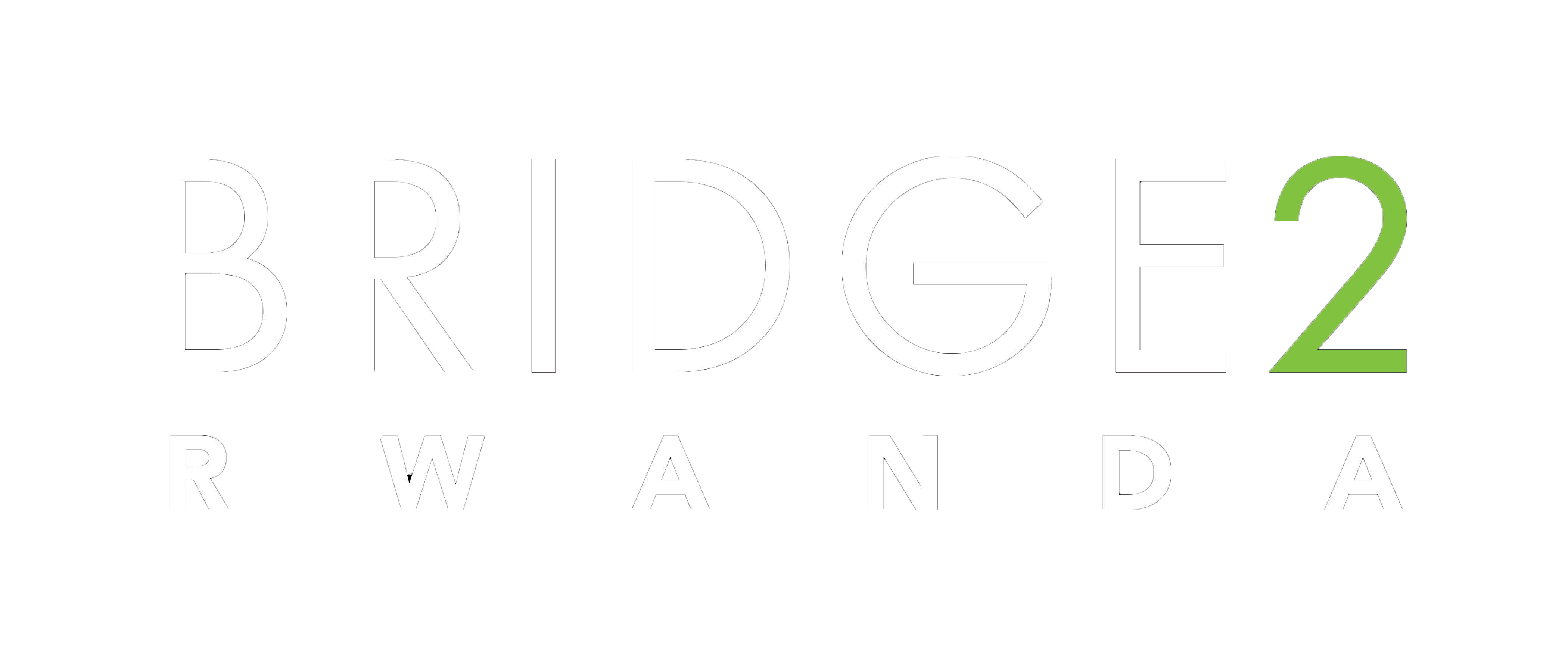Conservation Agriculture Tripled this Farmers’ Yields — Here’s How
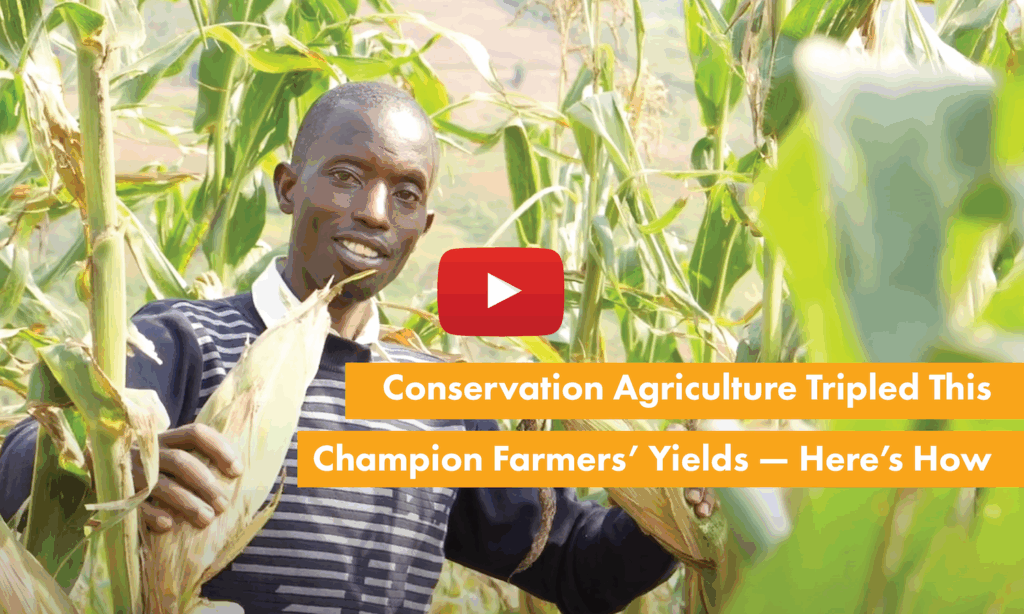
After years of poor harvests, Simeon had nearly given up, but after attending B2R Farms’ training on Conservation Agriculture, everything changed. With a single plot, he harvested 600kg from just 1/16th of a hectare—and never looked back. Now, his yields are triple those of neighboring farms, even in seasons with low rainfall, like this past […]
B2R Fellow Appointed as Policy Analyst in the Prime Minister Office
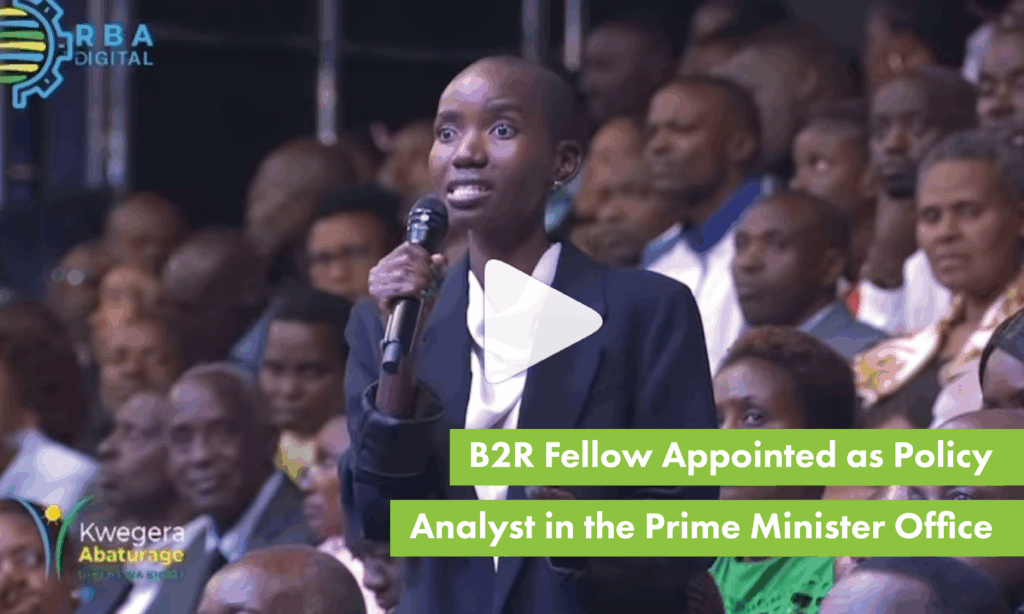
B2R Fellow, Francoise Niyigena, was recently appointed as a Policy Analyst in the Office of the Prime Minister by the President’s Cabinet. Her appointment follows a Citizen Reach #KwegeraAbaturage event attended by His Excellency President Paul Kagame, where she had the opportunity to speak on the impact the Imbuto Foundation and Bridge2Rwanda has had on […]
B2R Fellow Promotes Peace Through Entrepreneurship in DRC
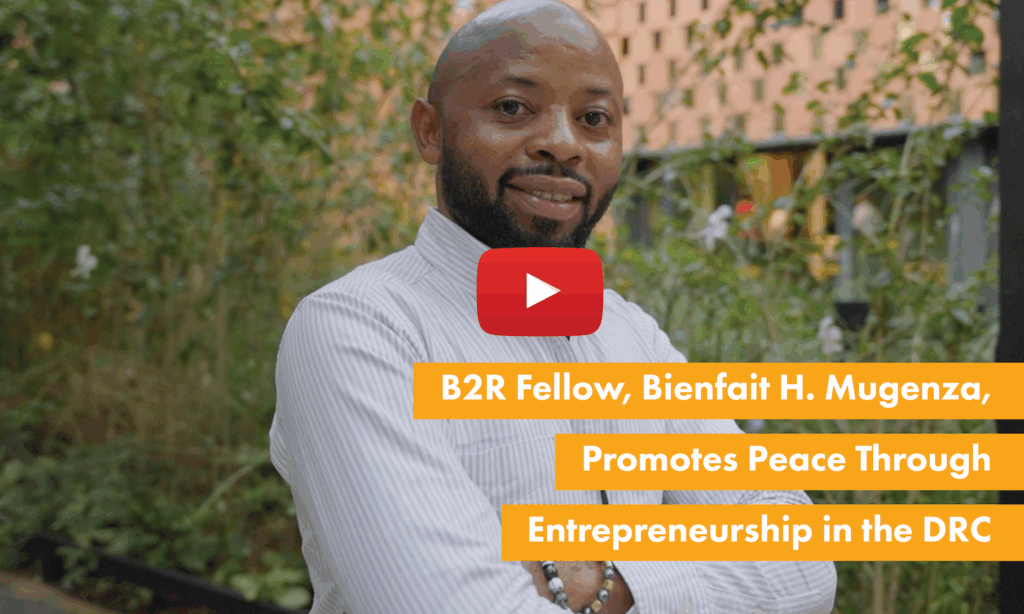
B2R Fellow, Bienfait Mugenza, graduated from the University of Rochester with a degree in Political Science and a vision of bringing peace to his home country of the Democratic Republic of Congo (DRC). Today, he is the Founder & Managing Director of Congo Peace Academy, a non-profit organization focused on promoting peace and stability through […]
B2R Farms’ Fellow Louise: Transforming Agriculture in Nyamagabe
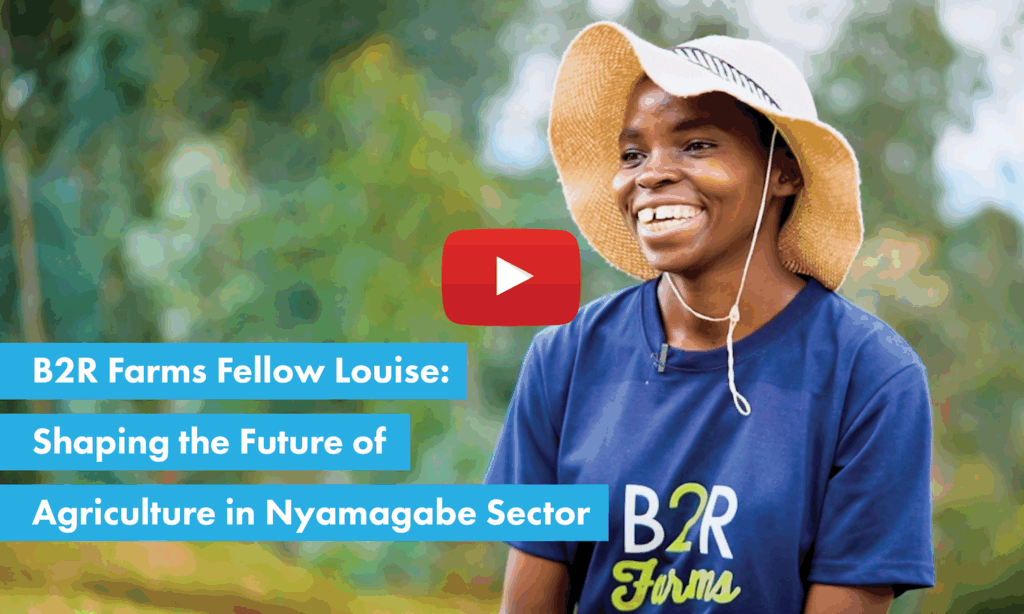
Growing up in Nyamagabe, in the Southern Province of Rwanda, Louise Nyirahubakimana saw firsthand the struggles of farmers in her community. Determined to make a difference, she pursued a degree in Agroforestry at the University of Rwanda, but after graduating, she faced significant challenges finding work and providing for her family—until she discovered the B2R […]
B2R Fellow Launches New Venture Capital Firm in Rwanda & Kenya
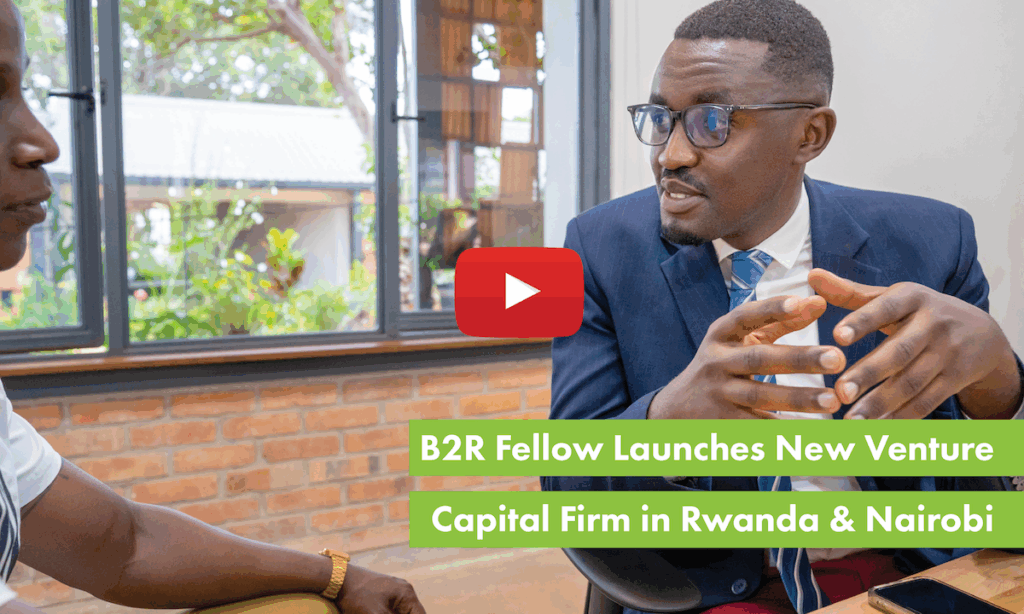
https://youtu.be/nF8Y9Y8jeGY?si=ixcRkPbDAvca9IEA B2R Fellow Serge Priam Nsanzineza graduated from Princeton University in 2020 with a degree in Chemical & Biological Engineering. Today, Serge is the co-founder of Higa Capital, a venture capital firm based in Kigali and Nairobi focused on investing in early-stage startups that use tech-driven solutions to transform industries and create sustainable impact. Alongside […]
B2R Fellow Opens Delicacy Shop in Rwanda
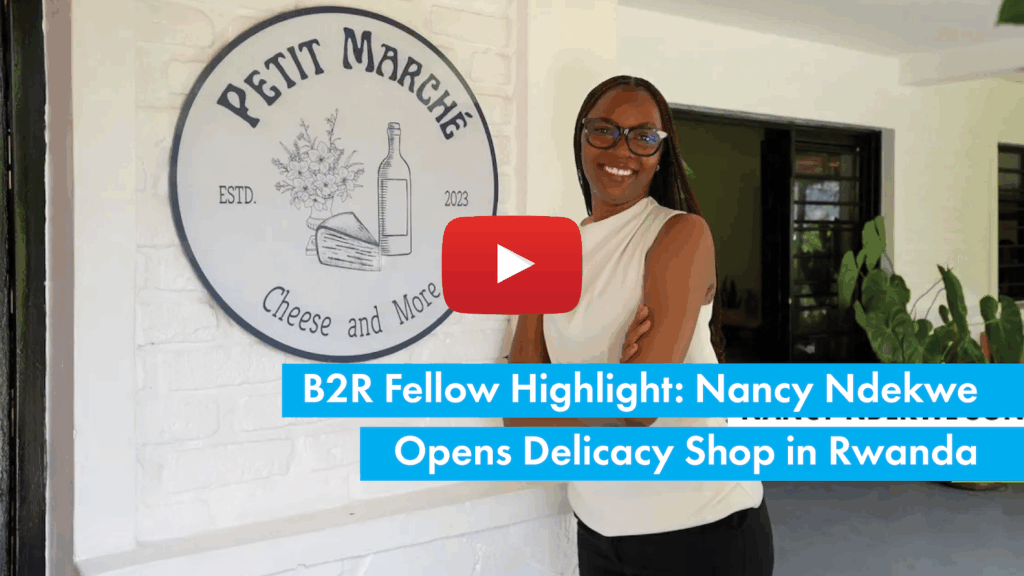
https://youtu.be/hemiqAmHJ-Y?si=8cUNoNeS4D97pk_n B2R Fellow, Nancy Ndekwe, graduated from Abilene Christian University and returned to Rwanda to begin her career as a Career Advisor working for The BRIDGE Talent Services. Today, she is the proud owner of Petit Marché, a delicacy shop in Kigali born from her passion for travel, food, and connecting cultures. What started as […]
B2R Fellow Helps Build a Brighter Future for Rwanda at Vanguard Economics

https://youtu.be/5xk3UhyD93k?si=b3_rTHlNFRfiSUGt B2R Fellow, Magnifique Mukundwa, graduated from Tufts University in 2020 and earned her Master’s in Data Science, Technology, and Innovation from the University of Edinburgh. Today, Magnifique works as a Senior Analyst at Vanguard Economics, where she uses numbers to shed light on different socioeconomic issues across the continent and identify innovative, home-grown solutions. […]
B2R Fellow Supports Entrepreneurs at Inkomoko
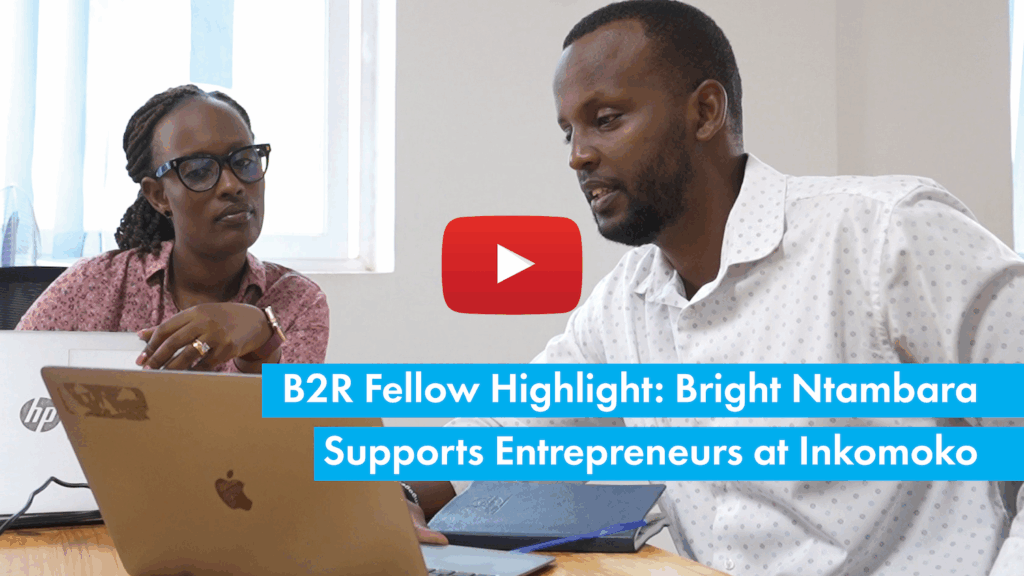
https://youtu.be/3iJMK0jWjME?si=rY-Eu8zxbjQV5fyR B2R Fellow, Bright Ntambara, graduated from Abilene Christian University in 2018 and earned his Master’s in Entrepreneurship and Innovation from the University of Edinburgh. Today, he works as the Programs Manager at Inkomoko, where he helps local entrepreneurs connect with markets, access funding, and create jobs that contribute to the economic transformation of Rwanda […]
From Skeptic to Believer: Champion Farmers Journey Implementing FFF
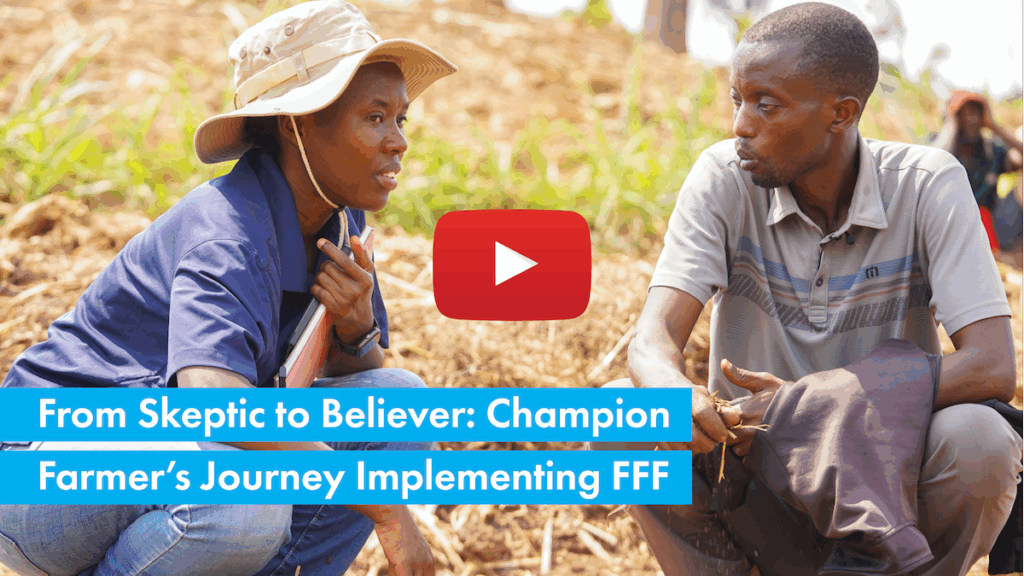
https://youtu.be/D8LMyPd61Ps?si=WkXx46mwmGgDQBdN Champion Farmer, Simeon Nshimiyimana, shares his journey from skepticism to success using Foundations for Farming’s conservation agriculture methodologies. After implementing FFF, he saw a dramatic increase in his yields—from just 1.5 sacks of maize using traditional methods to 6 sacks using FFF on the same plot. Today, Simeon has expanded his farm from 1.5 […]
The BRIDGE Places Candidates at Fortis Green Holdings
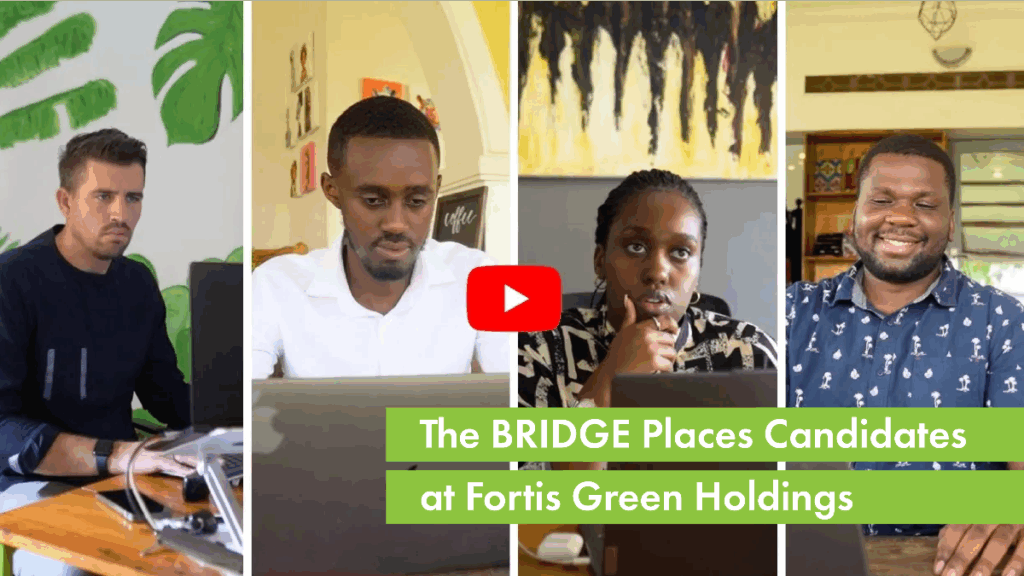
https://youtu.be/wbcuCYgjSBk?si=O98Zw-RhGQeoCYAZ This year, The BRIDGE proudly placed three exceptional professionals at Fortis Green Renewables, a leading investment management firm dedicated to providing flexible capital to small-scale renewable energy projects across Sub-Saharan Africa. Among them are B2R Fellow, Emmanuel Nsanganwa, UNL-CUSP Scholar Ferdinand Turatsinze, and Claudia Marebe Kalisa. With over $14 billion invested in 20 African […]
The BRIDGE Helps Launch Careers at Vanguard Economics
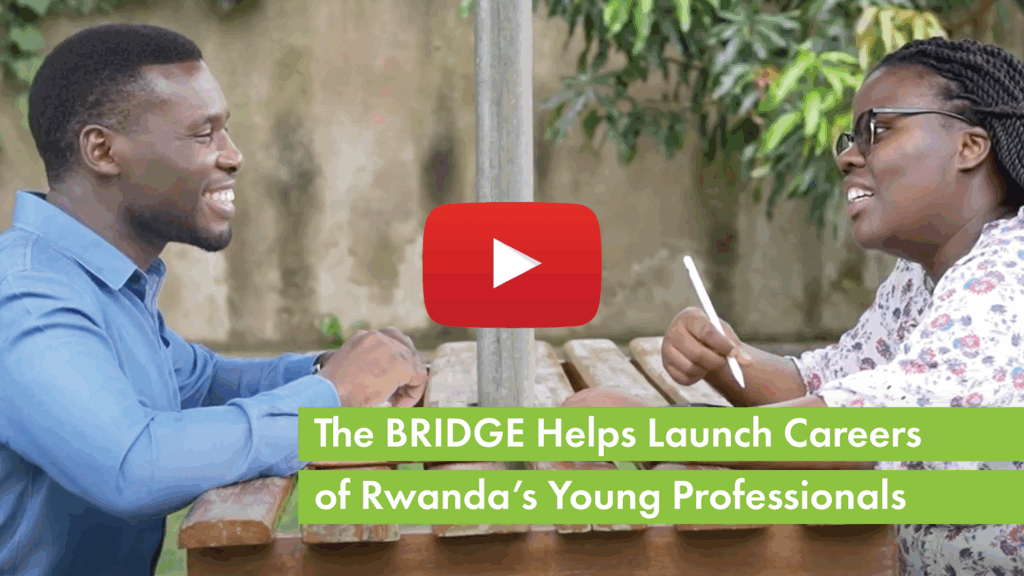
https://youtu.be/1v3dRJgXTmk?si=8LkvPR0axjgmuHz6 In collaboration with the University of Nebraska-Lincoln’s (UNL) CASNR-CUSP Fellowship Program, The BRIDGE connected Evariste Hategekimana to a 6-month internship at the National Agricultural Export Development Board, following his graduation from UNL. With the support of The BRIDGE, he was then selected to join Vanguard Economics’ Young Impact Associate program, a one-year professional development […]
